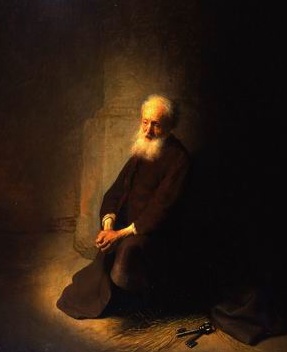 What makes Chris Armstrong’s new book, Patron Saints for Postmoderns: Ten from the Past Who Speak to Our Future
What makes Chris Armstrong’s new book, Patron Saints for Postmoderns: Ten from the Past Who Speak to Our Future
, unique is the choice he makes of those whom we can learn from. Antony and Gregory the Great are not surprising; Dante Alighieri is (at least that choice surprised me).
One winter here in Chicago I spent lots of my down time reading The Divine Comedy: Inferno; Purgatorio; Paradiso (Everyman’s Library)
. I loved it; read a biography of Dante and felt like he became part of my world. But I have to confess something: Armstrong’s short chapter on Dante took me on a journey into Dante’s own conversion that went beyond what I had seen in the book when I read it.
What have you gained from Dante? How does his story of conversion — his journey toward Paradise — help us today? What other writers are our guides?
We are treated to a journey into Dante’s personal conversion and turning from three central sins: the sin of romantic love, the sin of intellectual pride, and the sin of political power. These loves, Armstrong shows, are “disordered loves.” And Dante’s sainthood is connected to his ability to use the pen to lead us into deeper, ordered love and into deeper, ordered holiness.
For Dante, this means Beatrice, the cultured intellectual elite of Florence, and the bitter battles of the Guelfs and the Ghibellines — Beatrice dies and he must learn to purge himself of love for her; he realizes his intellectual prowess must die on the cross; and he is exiled to Ravenna to learn that he will never find his way back to his beloved Florence, let alone find his cultured position once again.
The brilliant three-part Divine Comedy is not examined for how Dante can be seen as a labeler of men — who goes to heaven and who goes to hell. Instead, Armstrong shows how Dante’s own life and progress in spirituality can be found tucked away in the pages of this masterpiece.
Armstrong: “Indeed, the poem can be read as a paean to the movement from the narrow, hidebound, provincial, selfish perspective to the irenic, humble, universal, divine perspective, in which all human idolatries, whether romantic or intellectual or political, are swallowed up” (70).
